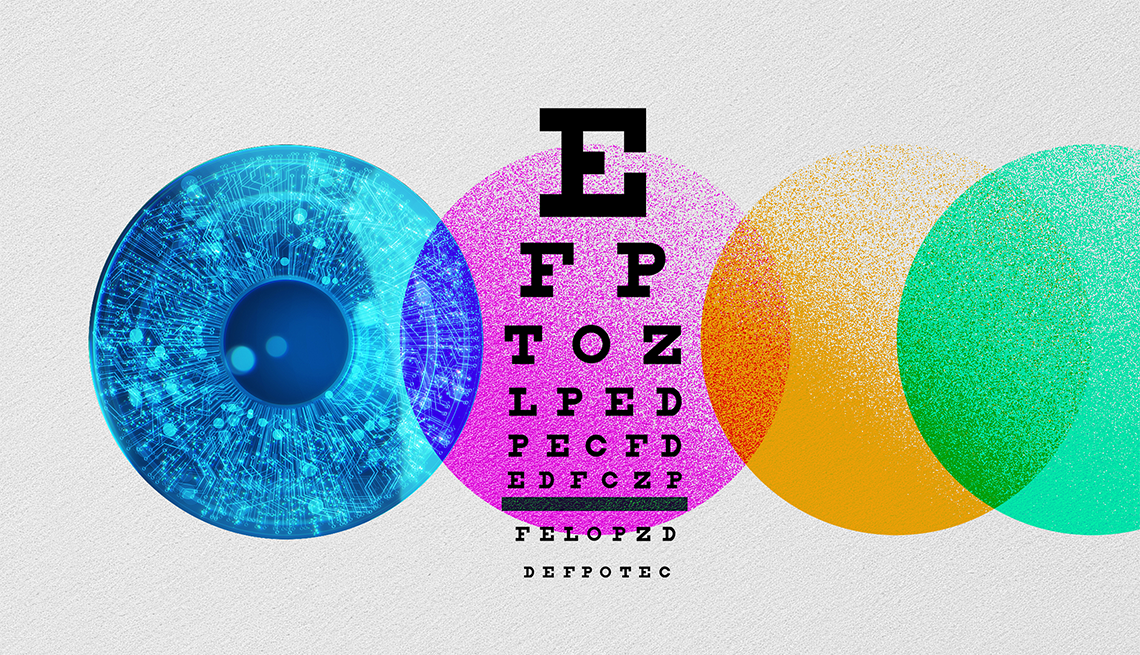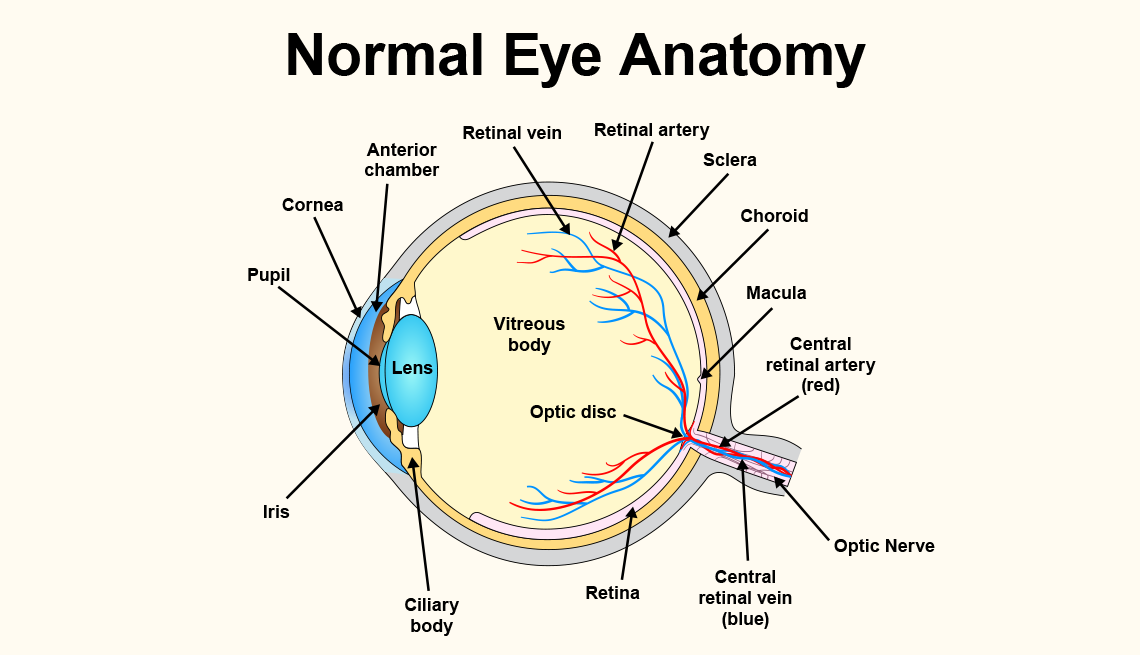AARP Hearing Center


It can be easy to dismiss changes to your eyesight as an inevitable fact of getting older. However, these changes can sometimes signify serious eye conditions that can lead to vision loss or even blindness, as well as reveal potentially dangerous health issues unrelated to sight. Getting regular eye exams can help to preserve your sight and detect diseases early.
At age 45, less than 1 percent of people are likely to have low vision, which means having impaired vision that may make everyday activities like reading and driving challenging and that cannot be fixed by standard means, including glasses, medication or eye surgery. By 75, that number jumps to nearly 5 percent, and then to 15 percent by the age of 85. But losing your vision with age doesn’t have to be a foregone conclusion. Detection of low vision and other potential eye issues through a dilated eye exam can be key to getting an early diagnosis and treatment.
“Older age is a risk factor for various eye conditions, including dry eye disease, cataracts, glaucoma and macular degeneration,” says eye surgeon Jovi Boparai, M.D. , CEO of CorneaCare in Princeton, New Jersey.
Eye exams can also help to diagnose conditions unrelated to sight — hypertension, high cholesterol, diabetes, aneurysms and even brain tumors — because doctors are able to directly see nerves and blood vessels in the eyes. According to the American Academy of Ophthalmology (AAO), problems found in the eye are often the first indicators of diseases that could be elsewhere in your body.
Read more on how often and why you should get a comprehensive vision exam.


Understanding eye parts and vision
While small, your eyeball is a complex structure with numerous parts working in sync to allow you to see.
Your eyes are complex structures with numerous parts working in sync to allow you to see. During an exam an optometrist or ophthalmologist looks at cornea, conjunctiva, eyelids, iris, lens, retina and optic nerve.
Read more about eye parts and how your vision works, and take our quiz on eye anatomy.
How often should you get your eyes checked?
Recommendations for the frequency of eye exams for older adults vary slightly and depend on your age, overall health and risk factors for eye disease.
- The American Academy of Ophthalmology recommends that adults get a complete eye examination at age 40 (earlier if you have an eye disease or risk factors such as diabetes, high blood pressure or a family history of eye disease). After that exam, your eye care provider can tell you how often you should have your eyes checked in the future. If you are 65 or older, you should get your eyes checked every year or two, the group says.
- The American Optometric Association (AOA) recommends that people at low risk for eye problems get an exam at least every two years between the ages of 40 and 64 and annually at 65 or older.
- The National Institute on Aging has slightly different recommendations, advising that everyone over age 50 have an eye exam annually, or as recommended by their eye care provider, and every year or two after age 60.
More frequent eye exams than those noted above may be needed for people with certain risk factors. These include people who:
- Wear contact lenses or glasses
- Have a family history of eye disease
- Have a history of eye surgery, an eye injury or previous eye damage from conditions such as strokes
- Are of Black, Native American or Hispanic descent
- Are overweight or obese (a body mass index [BMI] of 30 or more)
- Have health conditions, such as diabetes or high blood pressure, that can cause eye issues or vision loss
“Diabetes is the number one cause of preventable vision loss in this country, and it's called diabetic retinopathy. If you have any sort of damage to your eyes from diabetes, you very well may need to be seen more frequently,” says Daniel Diamond, instructor of optometric sciences in ophthalmology at Columbia University Irving Medical Center in New York City.
More than 9 million people in the United States have diabetic retinopathy, according to the Centers for Disease Control and Prevention (CDC).
It’s important to talk with your doctor or eye care professional to find out the best examination schedule for you.
If you already have glasses or contact lenses, you’ll want to have your prescription checked, because even minor changes in sight can you at a higher risk for falls.










































































More From AARP
6 Best Vitamins for Eye Health
Find out which nutrients are essential for protecting vision
Should You Exercise Your Eyes?
What experts say about vision therapyHow to Protect Your Vision
21 ways to take charge of your eye healthRecommended for You